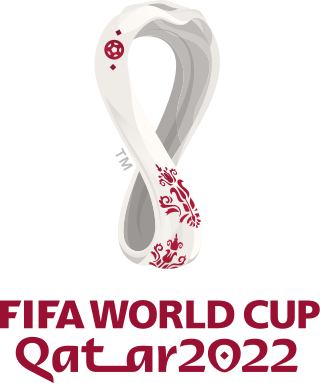Related Research Articles

The history of Qatar spans from its first duration of human occupation to its formation as a modern state. Human occupation of Qatar dates back to 50,000 years ago, and Stone Age encampments and tools have been unearthed in the Arabian Peninsula. Mesopotamia was the first civilization to have a presence in the area during the Neolithic period, evidenced by the discovery of potsherds originating from the Ubaid period near coastal encampments.

Emir, also transliterated as amir, is a word of Arabic origin that can refer to a male monarch, aristocrat, holder of high-ranking military or political office, or other person possessing actual or ceremonial authority. The title has a history of use in West Asia, East Africa, West Africa, Central Asia, and South Asia. In the modern era, when used as a formal monarchical title, it is roughly synonymous with "prince", applicable both to a son of a hereditary monarch, and to a reigning monarch of a sovereign principality, namely an emirate. The feminine form is emira, with the same meaning as "princess".

The Salafi movement or Salafism is a revival movement within Sunni Islam, which was formed as a socio-religious movement during the late 19th century and has remained influential in the Islamic world for over a century. The name "Salafiyya" is a self-designation, to call for a return to the traditions of the "pious predecessors", the first three generations of Muslims, who are believed to exemplify the pure form of Islam. In practice, Salafis claim that they rely on the Qur'an, the Sunnah and the Ijma (consensus) of the salaf, giving these writings precedence over what they claim as "later religious interpretations". The Salafi movement aimed to achieve a renewal of Muslim life and had a major influence on many Muslim thinkers and movements across the Islamic world.
The Qatar Foundation for Education, Science and Community Development is a state-led non-profit organization in Qatar, founded in 1995 by then-emir Hamad bin Khalifa Al Thani and his second wife Moza bint Nasser Al-Missned.

Sheikha Moza bint Nasser Al-Missned is one of the three consorts of Sheikh Hamad bin Khalifa Al Thani, the former Emir of the State of Qatar. She is the mother of the current Emir, Sheikh Tamim bin Hamad Al Thani. She is the co-founder and chair of the Qatar Foundation, the largest state-owned NPO in the country. The Guardian has labelled her "the enlightened face of a profoundly conservative regime.
Georgetown University in Qatar (GU-Q) is a campus of Georgetown University in Education City, Doha, Qatar. It is one of Georgetown University's eleven undergraduate and graduate schools, and is supported by a partnership between Qatar Foundation and Georgetown University.

The Qatar Stars League, known as Ooredoo Stars League for sponsorship reasons, is the top level football league in Qatar football league system. Contested by 12 teams, it operates on a system of promotion and relegation with the Qatari Second Division (QSD). The QSL season usually runs from September to April. The league's first season was played in 1963, although the first official season occurred in 1972. The league currently features 12 clubs, with one club being demoted to make room for one club being promoted.
Josef (Yousef) Waleed Meri is an American historian of Interfaith Relations in the Middle East and the history of religion.

Qatar, officially the State of Qatar, is a country in West Asia. It occupies the Qatar Peninsula on the northeastern coast of the Arabian Peninsula in the Middle East; it shares its sole land border with Saudi Arabia to the south, with the rest of its territory surrounded by the Persian Gulf. The Gulf of Bahrain, an inlet of the Persian Gulf, separates Qatar from nearby Bahrain. The capital is Doha, home to over 80% of the country's inhabitants. Most of the land area is made up of flat, low-lying desert.

Qatar is a Muslim-majority country with Islam as the state religion. Salafi version of Islam is the state sponsored brand of Sunni Islam in the country, making Qatar one of the two Salafi states in the Muslim world, along with Saudi Arabia.

The Christian community in Qatar is a diverse mix of European, North and South American, Asian, Middle Eastern and African expatriates. In 2023, they form around 15.4% of the total population. Many of them are from the Philippines, Europe, and India. Most Christians in Qatar are not Arab Christians.

The 2022 FIFA World Cup was the 22nd FIFA World Cup, the quadrennial world championship for national football teams organized by FIFA. It took place in Qatar from 20 November to 18 December 2022, after the country was awarded the hosting rights in 2010. It was the first World Cup to be held in the Middle East and Persian Gulf countries, and the second held entirely in Asia after the 2002 tournament in South Korea and Japan.

Doha is the capital city and main financial hub of Qatar. Located on the Persian Gulf coast in the east of the country, north of Al Wakrah and south of Al Khor and Lusail, it is home to most of the country's population. It is also Qatar's fastest growing city, with over 80% of the nation's population living in Doha or its surrounding suburbs, known collectively as the Doha Metropolitan Area.
Sheikha Al-Mayassa bint Hamad bin Khalifa Al Thani is the sister of Qatar's ruling Emir Tamim bin Hamad Al Thani, and daughter of the country's former Emir Hamad bin Khalifa Al Thani and his second wife Sheikha Moza bint Nasser Al-Missned. Al-Mayassa was declared the most influential person in art on Art+Auction's top-10 list and ArtReview's Power 100, and prominently appears on the Time 100, and Forbes' The World's 100 Most Powerful Women. She was listed in the 'Top 100 most powerful Arabs' from 2014 to 2017 and 2021 by Gulf Business. Al-Mayassa serves as Chairperson of Qatar Museums, and it was reported by Bloomberg that her annual acquisition budget on behalf of the organization is estimated at $1 billion.

The Doha Metro is a rapid transit system in the Doha Metropolitan Area of Qatar's capital city Doha, which became operational on 8 May 2019. It has three lines with an approximate overall length of 76 km (47 mi) and 37 stations. It is an integral component of the larger Qatar Rail network, which will include a long-distance rail for passengers and freight, linking Qatar to the GCC, and the Lusail LRT. Capable of reaching 100 km/h (62 mph), the Doha Metro has one of the fastest driverless trains in the world.

Middle East Eye (MEE) is a United Kingdom–based media website and channel that primarily focuses on news related to the Middle East, North Africa, and the broader Muslim world. It is reportedly funded by the government of Qatar, though the organization itself denies this.

Muhammad ibn Abd al-Wahhab Mosque is the national mosque of Qatar located in Doha.

Sheikha Hind bint Hamad Al Thani is a Qatari royal.

Qatari literature traces its origins back to the 19th century. Originally, written poetry was the most common form of expression, but poetry later fell out of favor after Qatar began reaping the profits from oil exports in the mid-20th century and many Qataris abandoned their Bedouin traditions in favor of more urban lifestyles.

Nihal Naj Ali Al-Awlaqi is a Yemeni lawyer. She was the Yemeni Minister of Legal Affairs from 9 January 2016 to 17 December 2020. In 2016 she received the International Women of Courage Award.
References
- ↑ Ministry hosts seminar on role of awards in promoting creativity, Gulf Times, September 18, 2019.
- ↑ Mohammad Mostafa Saleem (2017). "Qatar". In Waïl S. Hassan (ed.). The Oxford Handbook of Arab Novelistic Traditions. Oxford University Press. p. 391. ISBN 978-0-19-934979-1.